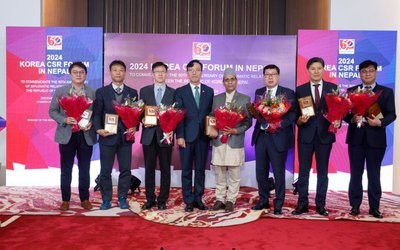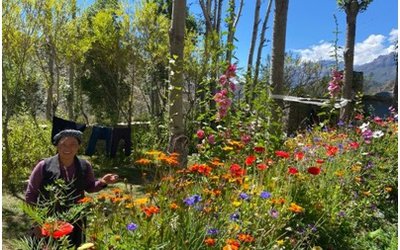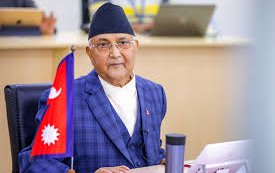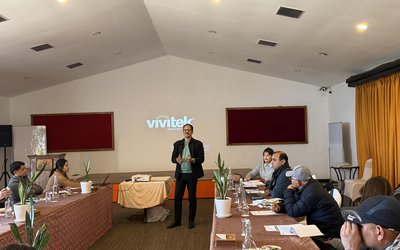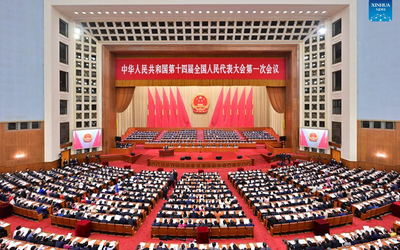
Nepal should take pride for successfully conducting another general elections. Representatives for the federal House of Representatives and seven province assemblies have been elected by the people of Nepal through largely peaceful and fair elections held in a single phase on November 20.
This was also a very special election for me personally. I had a great opportunity to work in a call center for the Nepal Law Society/General Election Observation Committee. The call center was operated to oversee and compile reports sent by the election observers from the field. This article is based on my experience of the same.
Observation of election is important for many reasons. First of all, it leads credibility and trust in the elections, and by extension, in the inclusive representative democracy. Secondly, observations are supportive of changes and reforms in the governance and administration of election.
In the recently concluded elections, the General Election Observation Committee had deployed a team of over 300 observers in 36 districts covering all seven provinces. The observers regularly briefed the call center.
Hence, I could have a close view of what goes on in the elections. I learnt the importance of election code of conduct and how the parties and the candidates made use of the elections to deepen their relations with the public.
Election of the Youth
From the very beginning, the national narrative in this election was in favor of youngsters. Everybody talked about the need to displace the older set of leaders with the fresh blood.
Being myself a young girl, I was excited to see many young candidates in the election. I am equally excited to see some of them have been successful. Their true test begins now.
One very interesting aspect of this election was how the youths have galvanized around the topic through social media. Overwhelmingly, the politics and the government of this country is dominated by older people. They may be experienced but lack the zeal and enthusiasm.
Through social media like facebook, youtube and tiktok, the youths of Nepal constantly raised serious issues about the need to improve the governance of the country. They were very active in pointing fingers at discrepancies of by the established political parties and the leaders.
The youths used the new media tools to mobilize support for their candidates of choice. Given the active use of these tools by youths, even the senior most leaders were found visiting a club in Kathmandu with the aim to attract them. Music videos were also used targeting the youths.
However, the number of women as candidates were very low. Out of the total 165 seats to be elected under First-Past-The-Post (FPTP) for House of Representatives, there were just over 200 women in the field – which is less than 10 percent of the total number of candidates. It was a bit strange to see that though all parties talk about their commitment towards inclusion, they have not walked the talk.
The parties have tried to use the Proportional Representation (PR) system to fulfill the constitutional obligations to field at least 33 percent women candidates.
This may be constitutionally or legally correct – but cannot be morally or socially justified. More and more women and youths should be fielded by bigger political parties – which will then inspire the entire country and the people.
As election results roll in, it is satisfying to see many youths getting elected – particularly in the Kathmandu valley. New party has also emerged. From social media, the youths have slowly travelled towards the national platform.
Now, they will have to face the actual challenges and use their vigor, energy and creativity to address them. If they are successful, the Nepali voters will certainly reward them in coming days. Otherwise, the same old pattern will emerge.
Improving election
As I grew up, I used to hear stories of vote-rigging and violence during election. Security used to be one of the major concerns for conducting elections in Nepal.
This year the election commission and the government had deployed all security agencies including army, police and temporary police personnel to ensure safety. Despite all the arrangements, there were few violent incidents and sad loss of two lives on the election day in Bajura district. But, by and large, it was comparatively much more peaceful.
During my involvement in the call center, where I had the responsibility to collect reports from the observers posted in Gandaki province, I noticed the following key pattern:
People seemed increasingly aware about adhering to the election rules and code of conduct, which were followed strictly compared to the past elections. The security personnel have improved their efficiency. The Nepal police and Myadi police (temporary police) were deployed to each election booth and required areas properly. There was no serious fight or conflict between the party members and the local people. The local people were keen on exercising their right to vote. However, there is a need to be cautious because this time the initial national figures showed marked decrease in the voter turn-out. A healthy turn out is crucial for the health of democracy.
Likewise, election observers were co-operative throughout the process. The political parties’ candidates did the campaigning by mostly following the rules and regulations, which made the pre-election days peaceful compared to last elections. There were exceptions though, such as use of money and materials to influence the voters. The polling stations were mostly the school grounds, which were quite comfortable for the local people to go and vote.
In the coming days, the authorities would need to keep on improving these aspects of election including the voters’ education. Along with this, if there is further improvement in women and youth involvement, the democracy will continue to flourish in the country.
- It Takes A Community To Deal With Dengue
- Sep 20, 2022



